The theme of the lesson: Outstanding People
The aims of the lesson:
Educational: to give pupils the information about the famous Kazakh
people;
Developing: to teach pupils to express their own opinions, to enlarge
their vocabularies, to develop their communicative skills.
Up-bringing: to inoculate in pupils love for their country, to respect its
spiritual wealth
The type of the lesson: lesson of taking new materials
The form of the lesson: demonstrative lesson
Methods of the lesson: presentation, question-answer, discussion, testing,
group work, pair-work
Visuals: slides with the information about famous Kazakh
people in the interactive board, video material,
schemes, Subjectional connection: Kazakh, Russian, history
The plan of the lesson:
Organization moment.
Evocation
Revision of the previous materials (h/t)
Brainstorming
Presentation of the new materials
New lexics b) Grammar
Fixing exercises
Matching
Group-work
Video-question
Comprehension check (testing)
Home-task
Reflection
Conclusion
Procedure of the lesson:
I. – Good morning, dear boys and girls!
- Good morning, teacher!
- How are you! I’m glad to see you!
- We’re glad to see you too!
- Thank you! Dear pupils, today we’ll speak on the theme “Outstanding People”. At this lesson we are going to:
- to be able to speak about the Kazakh famous people;
- to enlarge our vocabularies, to develop our communicative skills;
- to feel ourselves as a proud citizen of Kazakhstan.
II. Evocation.
|
| At the beginning of the lesson | At the end of the lesson |
| The degree of the knowledge of this theme |
|
|
| The attitude to the theme of the lesson |
|
|
| The atmosphere in the class |
|
|
III. Before speaking on the new theme let’s review the previous materials. At the previous lessons we spoke about theatre, cinema and music, you made your own opinions concerning these themes, spoke about your idols, etc. Please tell me once again:
What is your hobby?
What kind of music do you like?
Who is your favourite actor or actress?
What films do you like best of all?
What is your favourite film?
Do you prefer going to the cinema or watching films at home?
Have you been to the theatre?
Thank you very much. I appreciate all of your opinions. Last lesson we worked in the group, and I gave such tasks, as to speak on the theme “Theatre” for 1group, and on the theme “Music” for 2 group. If you are ready, go to the blackboard. (In my lesson each group prepared their presentations)
IV. Brainstorming.
T: What spheres of society come into your mind when you hear about the outstanding people?


Policy Education
Outstanding People

 Music Outstanding people Theatre
Music Outstanding people Theatre



Sport Literature Art
Pupils name the spheres of the society where there are so numerous number of people, who has the role of the individual in the history.
V. a) Boys and girls,at the beginning of the lesson I’ve said that our today’s theme is Outstanding People, and now we’ll take some informations about some personalities from the different spheres, you named.
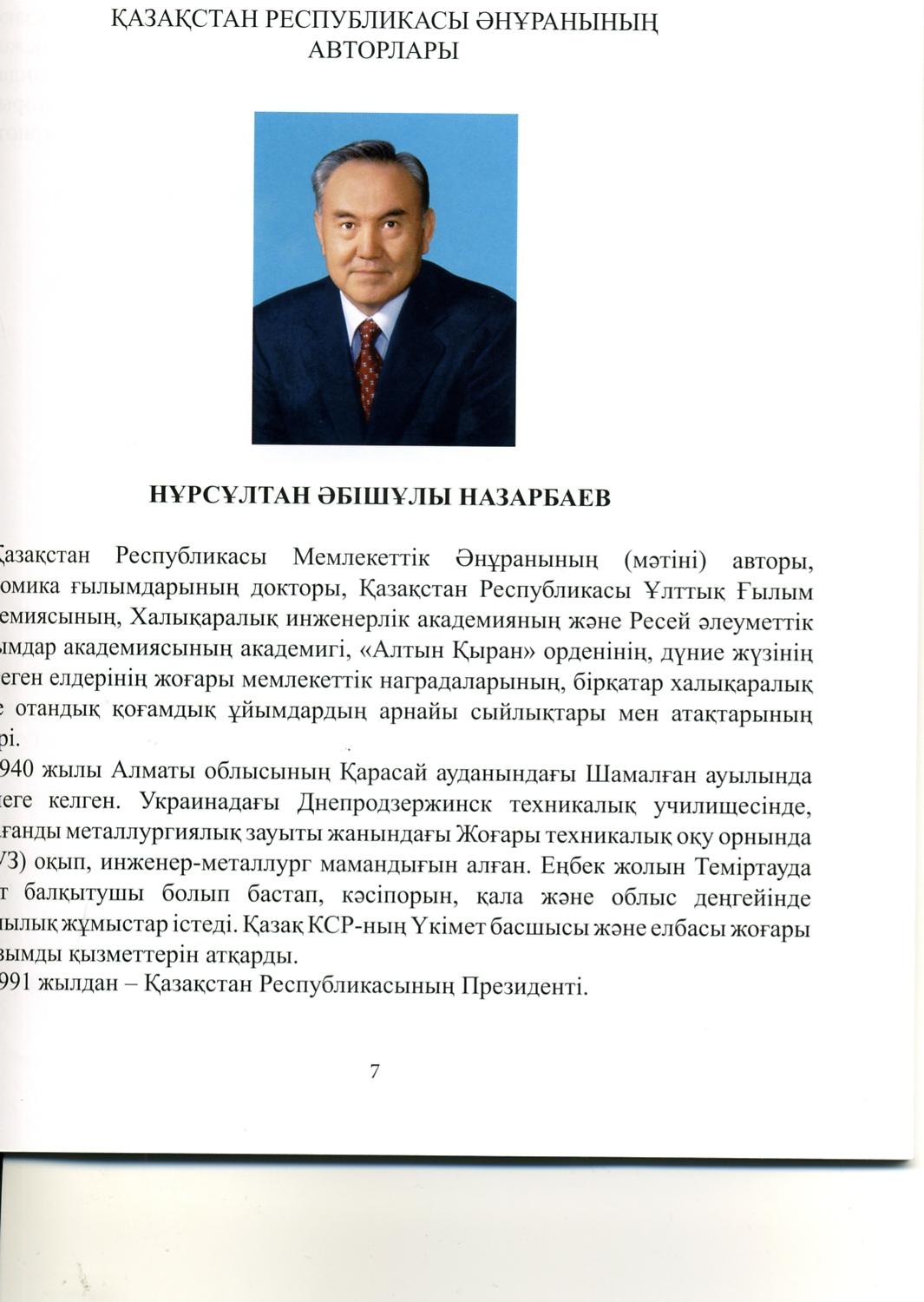 Nursultan Abishuly Nazarbayev is the first President of Kazakhstan, the great politician not only of Kazakhstan, but one of the outstanding figures of the world. He has been the country's leader since 1989, when he was named First Secretary of the Communist Party of the Kazakh SSR, and was elected the nation's first president following its independence from the Soviet Union in December 1991. In April 2011, Nazarbayev was re-elected to another five-year term.
Nursultan Abishuly Nazarbayev is the first President of Kazakhstan, the great politician not only of Kazakhstan, but one of the outstanding figures of the world. He has been the country's leader since 1989, when he was named First Secretary of the Communist Party of the Kazakh SSR, and was elected the nation's first president following its independence from the Soviet Union in December 1991. In April 2011, Nazarbayev was re-elected to another five-year term.
Ibray Altynsarin was a famous Kazakh educator and teacher of the 19th century. He was born in 1841 in Torghai region. Altynsarin started a Cyrillic alphabet for the Kazakh language. He opened many Kazakh-Russian schools and schools for girls. He translated books and textbooks. He wrote the first Kazakh Grammar book. Altynsarin travelled a lot and visited many countries. He liked children and wrote poems for them. A lot of streets, institutes and schools are named after Altynsarin. There is an Altynsarin museum in Kostanay.
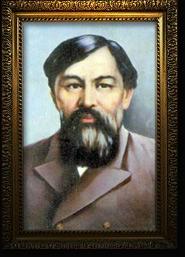
Abay Kunanbayev is a famous writer and poet. He was born in 1945in Abay region. Grandmother Zere told him tales and sang songs. He went to school in Semipalatinsk. Abay wrote many books and poems. His main book is The Book of Words. He translated Pushkin, Krylov and Lermontov into Kazakh. He lived a long life and did a lot for people. Many streets, squares, theatres are named after Abay. People in many countries know Abay and his works. There are monuments to Abay in many cities.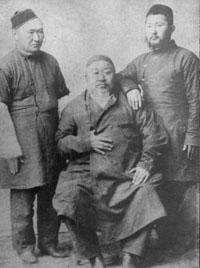
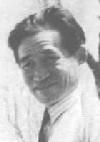
Abylkhan Kasteyev, People's Artist of Kazakhstan, winner of the Ch.Valikhanov Kazakh SSR State Prize, was born on January 1,1904 in the settlement of Chizhin (Panfilov district, Taldy-Korgan region). Studied at N.G.Khludov's studio in Almaty.One of the founders of painting art in Kazakhstan. Died on November 2,1973. The name of A.Kasteyev is assigned to the largest in the Republic State museum of Fine Arts of the Republic of Kazakhstan.The building that houses a gallery of the famous printer has a long history. Previously, it served as a military commissariat, offices for the Communist Party committee and a House of Pioneers.In 1936 200 works of painting and graphic arts from the reserves of the Tretyakov Gallery, the State Russian Museum and the Pushkin State Museum of Fine Arts were presented to the State Museum of Arts of Kazakhstan, which later was named after Abylkhan Kasteyev.
Kanysh Satbayev was the prominent Kazakh geologist, a founder and the first President of the Kazakhstan Academy of Sciences, Professor, Doctor of Geology and Mineralogy, Member of the USSR Academy of Sciences and Member of the Presidium, the State and Lenin prize-winner.The great learning, the important contribution to the Victory in the Great Patriotic War, remarkable geological, scientific and industrial achievements together with social and political activities made Kanysh Satpayev as famous as Abai Kunanbayev, Chokan Valikhanov and Mukhtar Auezov - great sons of the Kazakh people. 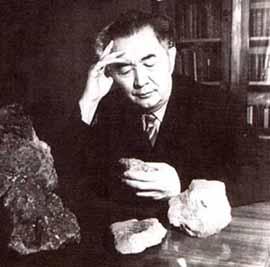
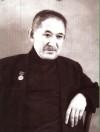 Shamshi Kaldayakov was a Kazakhstani composer. In 1956, he composed the music to the patriotic song My Kazakhstan. It was adopted in 2006 to be the Kazakhstan national anthem by Kazakh President Nursultan Nazarbayev after a few modifications in the lyrics, gone down in history.
Shamshi Kaldayakov was a Kazakhstani composer. In 1956, he composed the music to the patriotic song My Kazakhstan. It was adopted in 2006 to be the Kazakhstan national anthem by Kazakh President Nursultan Nazarbayev after a few modifications in the lyrics, gone down in history.
Kazhimukan — an outstanding Kazakh wrestler and circus artist. He repeatedly (in 1908, 1909, 1911, 1913, 1914) won in the world championships in Graeco-Roman wrestling among the professionals. He is the first Kazakh, who gained the title of the champion in French wrestling, and repeatedly won in the world, Russian, regional, also in All-Union championships among the heavy-weights. Kazhimukan is a holder of about fifty differentrewards and medals.
Auezov Muhtar Omarhanovich(1897-1961) – the great writer, known in many countries.The first and earliest Auezov’s work was the play "Enlik-Kebek" based on the national legend about tragical destiny of two young people, dared to put the feelings above patrimonial conflicts. The play "Enlik-Kebek" for the first time was put in yurt of Abai’s wife Aigerim and since then didn’t descend from the Kazakh stage.The completion of Auezov’s creative researches was found in a novel-epopee "Abai’s Path", consisting of four books.
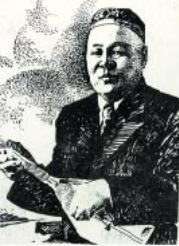
Manarbek Erzhanov was one of the first actors at the Kazakh Drama Theatre (1928) and the Kazakh Musical Theatre (1934) . He was born in Karagandy region, district Aktogai, village Karabulak. From early childhood he learnt to play dombyra from a local dombyrashy Kusenbai, sang songs and took part in improvisers' contests (aitys) held between villages. In 1928 he worked at the Kazakh drama theatre and then in years 1931-32 worked at the theatre of working youth in Ridder (Leninogorsk). In years 1934-35 he worked as a singer at the Almaty musical theatre of that time and then from 1953 up to the end of his life was the singer of Kazakh philharmonic society. M.Erzhanov has also number of his own songs.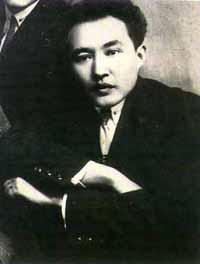
- Dear friends! I think you have more information about the life and activities of some Kazakh famous people. What have you learnt from these materials?
- We’ve known some new facts. – I have known about Manarbek Erzhanov, before I knew nothing about this actor.
- I’m glad to hear it. We’ll return to this theme, but now it’s time to take grammar.
b) Today’s grammar theme is Indirect Speech. There are 2 ways of conveying the speaker’s words:
| Direct Speech | Indirect Speech |
| To report smb’s words without any changes, keeping grammatical, lexical and intonational features | is the exact meaning of what someone said, but not the exact words, |
| Examples |
| The boy says: “I am busy”. The teacher asks the pupils: “Are you ready?” | The boy says that he is busy. The teacher asks the pupils if they are ready. |
|
| If the verb of the main sentence is in the past tense, there will be the sequence of tenses (grammatical, lexical, intonational changes) |
| The boy said: “I am busy”. The teacher asked the pupils: “Are you ready?” Bolat asked Madina: “Where are you from?” | The boy said that he was busy. The teacher asked (wanted to know) if (whether) they were ready. Bolat asked Madina where she was from. |
| Direct Speech | Indirect Speech |
| Present Simple Past Simple Present Continuous Present Perfect Future Simple can may must have to | Past Simple Past Perfect Past Continuous Past Perfect Future in the Past could might had to had to |
| Direct Speech | Indirect Speech |
| today now this tomorrow here ago | that day then thаt next day there before |
VI. Fixing exercises. a) Matching exercise.
| Direct Speech | Indirect Speech |
|
1) “I watch TV every day”. 2) “ I am watching TV”. 3) “I have watched TV. 4) “I watched TV yesterday”. 5) “I can watch TV”. 6) “I may watch TV”. 7) “I must watch TV”. 8) “I have to watch TV”.
|
a) … I could watch TV. b) … I had watched TV. c) … I watched TV. d) … I had to watch TV. e) … I might watch TV. f) … I had to watch TV. g) … I had watched TV. h) … I was watching TV. |
b) Group work. Groups give each other sentences in the Direct Speech, they must define the tense, and turn them into the Indirect Speech. e.g.
1 group: Samal said: “I go to the library every day”.
2 group: It’s in the Present Simple. The Indirect Speech will be: Samal said that she went to the library every day.
c) Work with the heroes. Pupils listen to the heroes from video and turn their speech into Indirect Speech.
d) Comprehension check/ testing.
1. Ainara said: “I love sport”
Ainara said (that) she _____ sport.
a) loved
b) loves
c) loving
2. Asemgul said: “I went skiing”.
Asemgul said (that) she ____ skiing.
a) went
b) had gone
c) have gone
3. Edil said: “I will take part at the Olympic Games”.
Edil said (that) he _____ part at the Olympic Games.
a) willing
b) will
c) would
4. Erlik said: “I haven’t been to Sochi yet”
Erlik said (that) he _____ to Sochi yet.
a) hadn’t been
b) hasn’t been
c) was being
5. Akalka said: “I have had three balls”.
Akalka said (that) she _____ three balls.
a) has
b) has had
c) had had
6. Diana said: “I will go to Olympic Games in 2018”.
Diana said (that) she _____ go to Olympic Games.
a) will
b) would
c) shall
7. Meral and Nurbol said: “We go skating twice a week”.
Meral and Nurbol said (that) they ______ skating twice a week.
a) go
b) goes
c) went
8. Inzira and Gulsezim said: “We can’t swim”.
Inzira and Gulsezim said (that) they ____ swim.
a) can’t
b) couldn’t
c) can not
9. Asilbek and Allabergen said: “We are going to play tennis today”.
Asilbek and Allabergen said (that) they ____ going to play tennis that day.
a) was
b) were
c) have
10. Adilet and Erasil shouted: “Kazakhstan has won a bronze medal”.
Adilet and Erasil shouted that Kazakhstan ______ a bronze medal.
a) won
b) had won
c) has won
VII. It’s time to give you the home task. Your home task will be:
to prepare a topic on the theme “The most outstanding people”
Ex.9(a) p.22
VIII. Reflection.
|
| At the beginning of the lesson | At the end of the lesson |
| The degree of the knowledge of this theme |
|
|
| The attitude to the theme of the lesson |
|
|
| The atmosphere in the class |
|
|
IX.Conclusion.
Dear, boys and girls! The counted minutes are left, our lesson is nearly over. Now, let’s review what we’ve learnt today? (Pupils give their answers) Today all of you had an active part at the lesson. So I want you to mark each other. e.g.
1 group
|
| S1 | S2 | S3 | S4 | S5 | S6 | Total |
| Inzira |
|
|
|
|
|
|
|
| Gulsezim |
|
|
|
|
|
|
|
| Ainara |
|
|
|
|
|
|
|
| Edil |
|
|
|
|
|
|
|
| Allabergen |
|
|
|
|
|
|
|
| Asilbek |
|
|
|
|
|
|
|
| Diana |
|
|
|
|
|
|
|
2 group
|
| S1 | S2 | S3 | S4 | S5 | S6 |
| Akkalka |
|
|
|
|
|
|
| Asemgul |
|
|
|
|
|
|
| Erlik |
|
|
|
|
|
|
| Meral |
|
|
|
|
|
|
| Nurbol |
|
|
|
|
|
|
| Adilet |
|
|
|
|
|
|
| Erasil |
|
|
|
|
|
|
If your home task is ready, and you have no questions you may be free. See you on Monday! Good-bye!
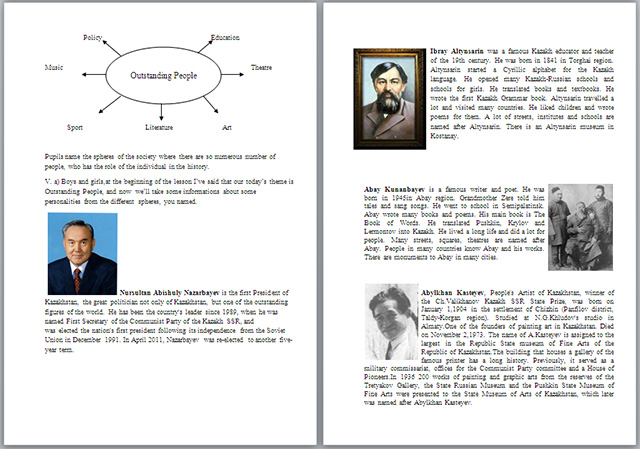

 Получите свидетельство
Получите свидетельство Вход
Вход






 Music Outstanding people Theatre
Music Outstanding people Theatre


 Nursultan Abishuly Nazarbayev is the first President of Kazakhstan, the great politician not only of Kazakhstan, but one of the outstanding figures of the world. He has been the country's leader since 1989, when he was named First Secretary of the Communist Party of the Kazakh SSR, and was elected the nation's first president following its independence from the Soviet Union in December 1991. In April 2011, Nazarbayev was re-elected to another five-year term.
Nursultan Abishuly Nazarbayev is the first President of Kazakhstan, the great politician not only of Kazakhstan, but one of the outstanding figures of the world. He has been the country's leader since 1989, when he was named First Secretary of the Communist Party of the Kazakh SSR, and was elected the nation's first president following its independence from the Soviet Union in December 1991. In April 2011, Nazarbayev was re-elected to another five-year term.



 Shamshi Kaldayakov was a Kazakhstani composer. In 1956, he composed the music to the patriotic song My Kazakhstan. It was adopted in 2006 to be the Kazakhstan national anthem by Kazakh President Nursultan Nazarbayev after a few modifications in the lyrics, gone down in history.
Shamshi Kaldayakov was a Kazakhstani composer. In 1956, he composed the music to the patriotic song My Kazakhstan. It was adopted in 2006 to be the Kazakhstan national anthem by Kazakh President Nursultan Nazarbayev after a few modifications in the lyrics, gone down in history.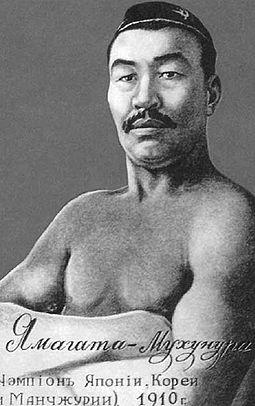











 Конспект урока по английскому языку по теме "Outstanding People" (0.71 MB)
Конспект урока по английскому языку по теме "Outstanding People" (0.71 MB)
 4
4 3357
3357 406
406 Нравится
0
Нравится
0


